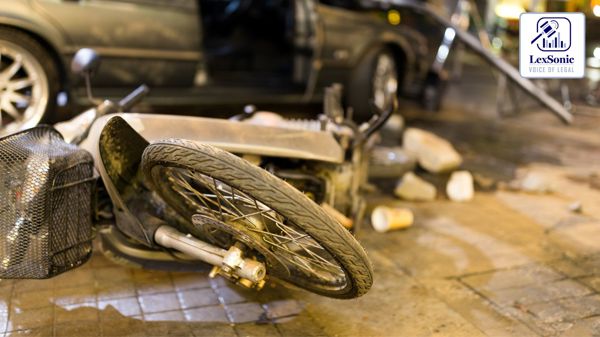Engineering Student's Compensation Enhanced: Supreme Court Sets Higher Notional Income for Accident Victim.
10 February 2025
Motor Accident >> Family Law
The Supreme Court of India recently delivered a judgment significantly impacting the calculation of compensation in motor accident claim cases, particularly for young students. The case involved Deepak, a student injured in a 2012 motorcycle accident that tragically claimed the life of his friend. Deepak's initial compensation claim was partially successful at the Motor Accident Claims Tribunal (MACT) in Gurgaon, but he felt the awarded amount was insufficient.
The MACT had awarded Deepak Rs. 7,09,303, with 7.5% interest, holding the driver, owner, and insurer of the offending vehicle jointly and severally liable. Dissatisfied, Deepak appealed to the High Court of Punjab and Haryana, which enhanced the compensation to Rs. 23,90,719, while maintaining the interest rate.

Undeterred, Deepak pursued the matter further, appealing to the Supreme Court. His counsel argued that the High Court erred in relying on minimum wages to calculate his future income, considering his status as a student. This argument resonated with the Supreme Court, which cited a similar case, Navjot Singh v. Harpreet Singh, where the court had specifically addressed the issue of notional income for students.
In Harpreet Singh, the Supreme Court had taken exception to equating the notional income of an engineering student from a premier institute to that of an unskilled worker. The Court recognized the potential for significantly higher earnings for such students, even suggesting a notional income of at least Rs. 10,000 per month in that particular case.
Applying the principles established in Harpreet Singh to Deepak's case, the Supreme Court acknowledged that the accident occurred in 2012. Considering this timeframe, the Court deemed it appropriate to adopt a notional monthly income of Rs. 10,000 for Deepak. This decision marked a departure from the lower courts' reliance on minimum wage calculations, recognizing the distinct earning potential of students pursuing professional degrees.
Based on this revised notional income, the Supreme Court recomputed Deepak's total compensation, arriving at a significantly higher amount of Rs. 34,56,110. The Court also upheld the 7.5% annual interest rate from the date of filing the claim petition, excluding a 642-day delay period in filing the appeal before the Supreme Court.
The Supreme Court's judgment sets a crucial precedent for determining compensation in similar cases. It underscores the importance of considering the individual circumstances and future earning prospects of accident victims, particularly students, rather than simply applying a standard minimum wage calculation. This decision provides much-needed clarity and ensures fairer compensation for those whose lives and careers are impacted by motor vehicle accidents. The appeal was accordingly allowed.
